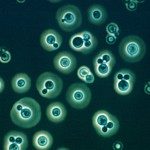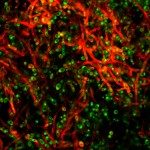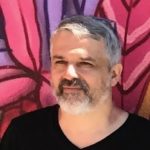Lien vers Pubmed [PMID] – 19451250
Infect. Immun. 2009 Jul;77(7):2783-94
Cryptococcus neoformans is a facultative intracellular opportunistic pathogen and the leading cause of fungal meningitis in humans. In the absence of a protective cellular immune response, the inhalation of C. neoformans cells or spores results in pulmonary infection. C. neoformans cells produce a polysaccharide capsule composed predominantly of glucuronoxylomannan, which constitutes approximately 90% of the capsular material. In the lungs, surfactant protein A (SP-A) and SP-D contribute to immune defense by facilitating the aggregation, uptake, and killing of many microorganisms by phagocytic cells. We hypothesized that SP-D plays a role in C. neoformans pathogenesis by binding to and enhancing the phagocytosis of the yeast. Here, the abilities of SP-D to bind to and facilitate the phagocytosis and survival of the wild-type encapsulated strain H99 and the cap59Delta mutant hypocapsular strain are assessed. SP-D binding to cap59Delta mutant cells was approximately sixfold greater than binding to wild-type cells. SP-D enhanced the phagocytosis of cap59Delta cells by approximately fourfold in vitro. To investigate SP-D binding in vivo, SP-D(-/-) mice were intranasally inoculated with Alexa Fluor 488-labeled cap59Delta or H99 cells. By confocal microscopy, a greater number of phagocytosed C. neoformans cells in wild-type mice than in SP-D(-/-) mice was observed, consistent with in vitro data. Interestingly, SP-D protected C. neoformans cells against macrophage-mediated defense mechanisms in vitro, as demonstrated by an analysis of fungal viability using a CFU assay. These findings provide evidence that C. neoformans subverts host defense mechanisms involving surfactant, establishing a novel virulence paradigm that may be targeted for therapy.


